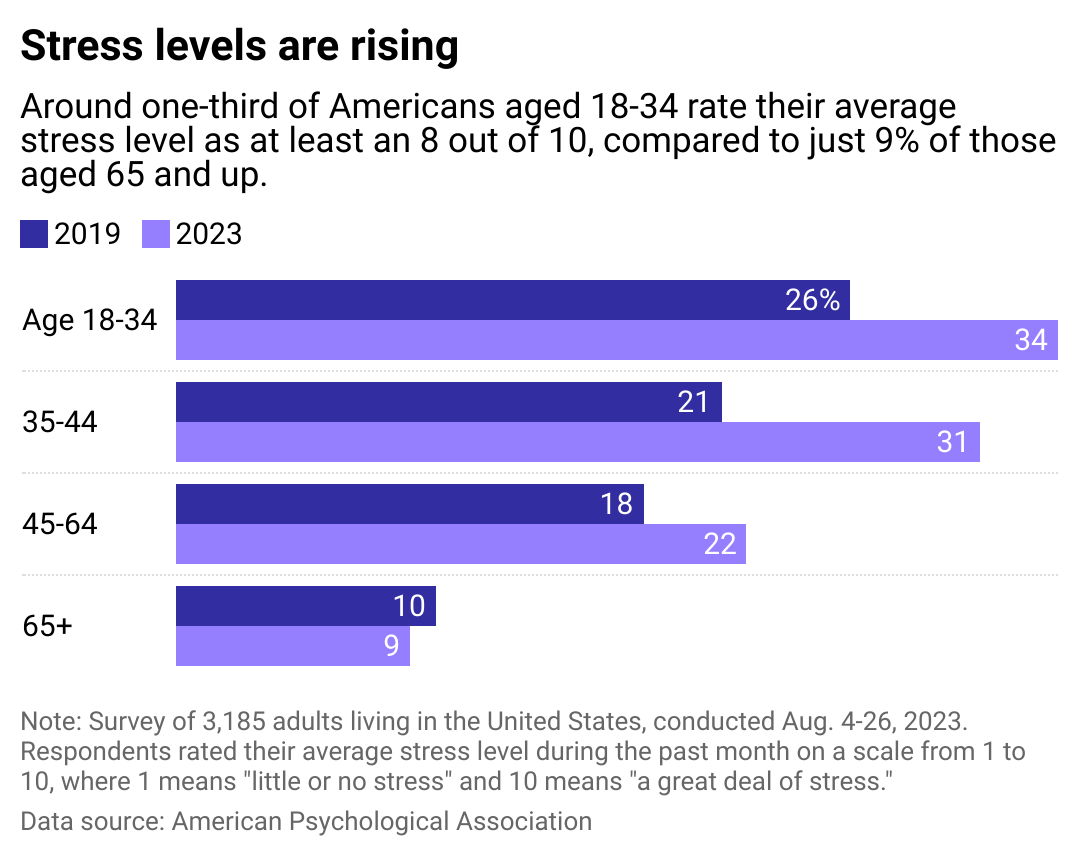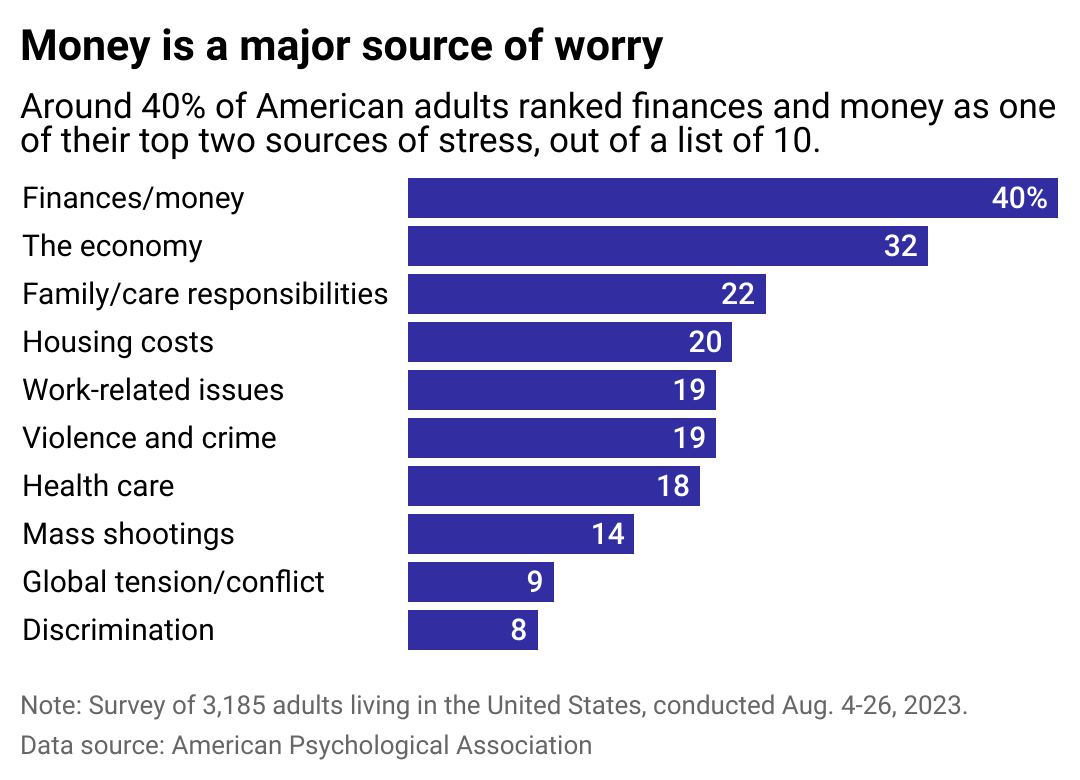Wind: 17.3 mph, W
Welcome to our new web site!
To give our readers a chance to experience all that our new website has to offer, we have made all content freely avaiable, through October 1, 2018.
During this time, print and digital subscribers will not need to log in to view our stories or e-editions.

Stress levels are rising in America. A full quarter of adults in the United States reported high levels of stress in 2023, up from 19% in 2019, according to a survey conducted by the American Psychological Association in August 2023.
The four-year shift is hardly surprising, considering the shutdowns, social distancing, uncertainty, economic fallout, canceled vacations, and 24/7 remote-work culture Americans were plunged into during the peak of the COVID-19 pandemic in 2020 and 2021.
The national public health emergency response to COVID-19 officially ended May 11, 2023, but plenty of other stressors abound along with lingering effects (and additional cases) of COVID-19. This includes everything from recent economic challenges and inflation, technological changes, anxieties around climate change, global conflicts, inequity, and racial injustice. Throw an upcoming presidential election on top of it all, and it's no wonder Americans are feeling the heat.
Wysa examined data from the APA survey to see which issues are creating the most stress for Americans. Responses are from 3,185 adults living in the United States. APA psychologists who reviewed the survey data largely shared the sentiment that this survey supports growing evidence that suggests our society is undergoing psychological impacts of collective trauma.
Keep reading to learn more about the rise in pressure across the country.

One question in the survey asked respondents to rate their average level of stress on a scale of 1 to 10, with 1 corresponding to "little or no stress", and 10 meaning "a great deal of stress". By this measure, levels of stress increased for all age groups between 18 and 64.
The share of Americans aged 18-34 who rate their average stress level between 8 to 10 increased from 26% in 2019 to 34% in 2023. Only adults aged 65 and up saw a decrease in stress levels during this time period. The share of seniors who rated the average stress level somewhere between 8 to 10 fell slightly during the same time period, from 10% to 9%.
Talking about mental health can be difficult. About 67% of adults said that they did not think their problems were "bad enough" to be stressed about, while 62% said that they did not want to discuss their mental health issues with others because they did not want to be a burden. An estimated 81% of adults reported their mental health as good or better, yet 37% said they had been diagnosed with a mental health condition.

Money and the economy reign supreme when it comes to their negative effects on Americans' mental health.
Survey respondents were presented with a list of 10 topics and asked to rank them in order of how stress-inducing they were. Forty percent of people cited "finances/money" as one of their top two stressors, while 32% listed "the economy". Other money-adjacent topics, including housing costs and health care, made it into the top two among 20% and 18% of respondents, respectively. Family and care responsibilities ranked third on the list. Other topics, such as mass shootings, global tensions, and discrimination (including racism and sexism), ranked at the bottom.
Parents were more likely to fret about their finances. Around 66% of adults who have children in the household say they feel consumed by worries regarding money, compared with just 39% of adults without children. Moreover, 41% of parents agreed that most days they are so stressed they can't function, compared with only 20% of childless adults.
At the time of the survey, the labor market had cooled with fewer jobs added—down from the monthly average of 312,000 jobs added in the previous 12 months—and interest rates on the rise, with the consumer price index rising to 3.2% in July from 3% the month prior. The cost of eating at home in July 2023 was 3.6% higher than a year before while eating out was up 7.1% over the same period.
Psychological research has found that chronic stress can also have serious physiological effects, potentially leading to issues such as digestive problems and heart disease, and can even make people more vulnerable to diseases like cancer. Between 2019 and 2023, Americans aged 35 to 44 experienced the biggest increase in mental health diagnoses and chronic illnesses, such as high blood pressure or arthritis, underscoring the connection between mental and physical health.
Story editing by Nicole Caldwell. Copy editing by Tim Bruns.
This story originally appeared on Wysa and was produced and distributed in partnership with Stacker Studio.